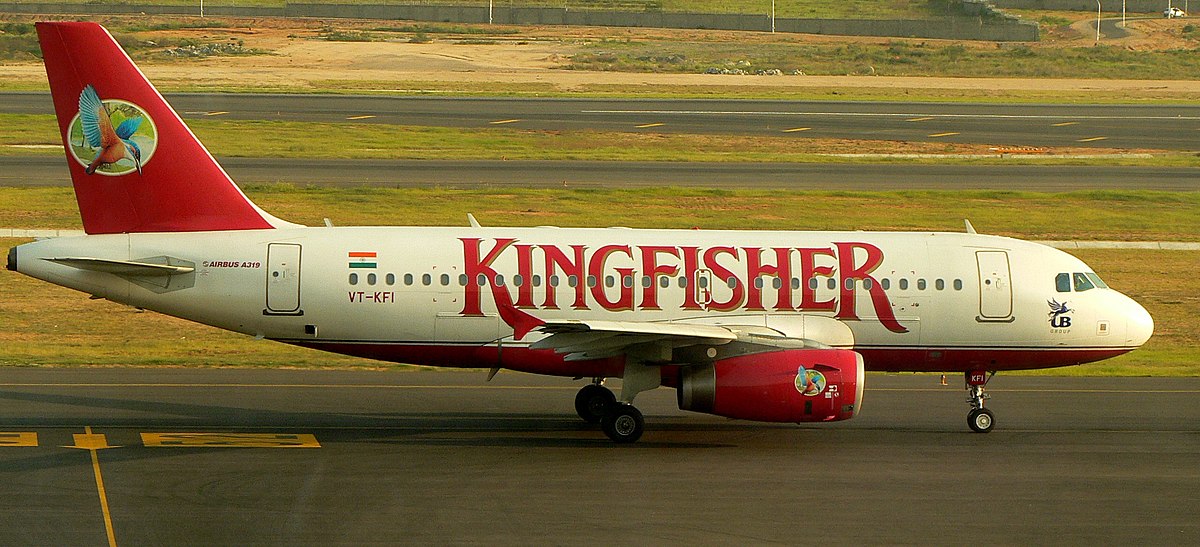
Kingfisher Airlines once soared the skies as one of India's most glamorous airlines. Founded by the flamboyant Vijay Mallya in 2003, it promised luxury and comfort. But what led to its dramatic downfall? Why did Kingfisher Airlines fail despite its initial success? This blog post dives into the rise and fall of this once-celebrated airline. From its lavish in-flight services to the financial missteps that grounded it, we'll explore 18 intriguing facts that paint a full picture. Buckle up as we unravel the story behind Kingfisher Airlines' turbulent journey.
Key Takeaways:
- Kingfisher Airlines, founded by Vijay Mallya, offered luxurious flying experiences with in-flight entertainment and stylish uniforms. Despite its downfall, it set new standards for the Indian aviation industry.
- The airline's financial troubles and eventual closure served as a cautionary tale for the importance of financial management and sustainability in the aviation industry.
The Rise of Kingfisher Airlines
Kingfisher Airlines, once a prominent name in Indian aviation, had a fascinating journey. Let's explore some intriguing facts about this airline.
-
Kingfisher Airlines was founded by Vijay Mallya in 2003, aiming to provide a luxurious flying experience.
-
The airline commenced operations on May 9, 2005, with a flight from Mumbai to Delhi.
-
Kingfisher Airlines was named after the popular Indian beer brand, Kingfisher, also owned by Vijay Mallya.
-
The airline quickly gained a reputation for its high-quality service, even offering in-flight entertainment systems on domestic flights.
Luxurious Offerings and Unique Features
Kingfisher Airlines was known for its luxurious offerings and unique features that set it apart from other airlines.
-
The airline offered a premium class called "Kingfisher First," which included lie-flat seats, gourmet meals, and personal screens.
-
Kingfisher Airlines was the first Indian airline to introduce in-flight entertainment systems on every seat in both economy and business class.
-
The airline's flight attendants were known for their stylish uniforms designed by renowned fashion designers.
-
Kingfisher Airlines had a frequent flyer program called "King Club," which allowed passengers to earn and redeem miles for various rewards.
Expansion and International Ventures
Kingfisher Airlines expanded rapidly and ventured into international markets, aiming to become a global player.
-
In 2008, Kingfisher Airlines launched its first international flight from Bengaluru to London Heathrow.
-
The airline had ambitious plans to connect major international destinations, including the United States, Europe, and Southeast Asia.
-
Kingfisher Airlines became a member of the prestigious Oneworld airline alliance, enhancing its global reach.
-
The airline operated a fleet of modern aircraft, including Airbus A320s, A330s, and ATR 72s.
Financial Troubles and Decline
Despite its initial success, Kingfisher Airlines faced financial troubles that eventually led to its downfall.
-
By 2012, the airline had accumulated significant debt and struggled to pay its employees and suppliers.
-
Kingfisher Airlines' financial troubles were exacerbated by rising fuel costs and intense competition in the Indian aviation market.
-
The airline's operating license was suspended by the Directorate General of Civil Aviation (DGCA) in October 2012 due to safety concerns and financial instability.
-
Kingfisher Airlines ceased operations in 2012, leaving thousands of employees without jobs and passengers stranded.
Legacy and Impact
Even though Kingfisher Airlines no longer operates, its legacy and impact on the Indian aviation industry remain significant.
-
The airline's luxurious offerings and high-quality service set new standards for the Indian aviation industry.
-
Kingfisher Airlines' downfall served as a cautionary tale for other airlines about the importance of financial management and sustainability.
The Final Flight
Kingfisher Airlines, once a symbol of luxury and ambition, now serves as a cautionary tale in aviation history. Its rapid rise and equally swift downfall highlight the importance of sound financial management and strategic planning. Despite its glamorous image and high-profile endorsements, the airline couldn't sustain its operations, leading to its eventual collapse. This story reminds us that even the most promising ventures can falter without a solid foundation. For aviation enthusiasts and business strategists alike, Kingfisher Airlines offers valuable lessons on the complexities of running an airline. While its legacy may be tarnished, the memories of its opulent service and ambitious vision linger. As we reflect on Kingfisher's journey, it's clear that success in the airline industry requires more than just a grand vision; it demands resilience, adaptability, and prudent financial practices.
Frequently Asked Questions
Was this page helpful?
Our commitment to delivering trustworthy and engaging content is at the heart of what we do. Each fact on our site is contributed by real users like you, bringing a wealth of diverse insights and information. To ensure the highest standards of accuracy and reliability, our dedicated editors meticulously review each submission. This process guarantees that the facts we share are not only fascinating but also credible. Trust in our commitment to quality and authenticity as you explore and learn with us.


